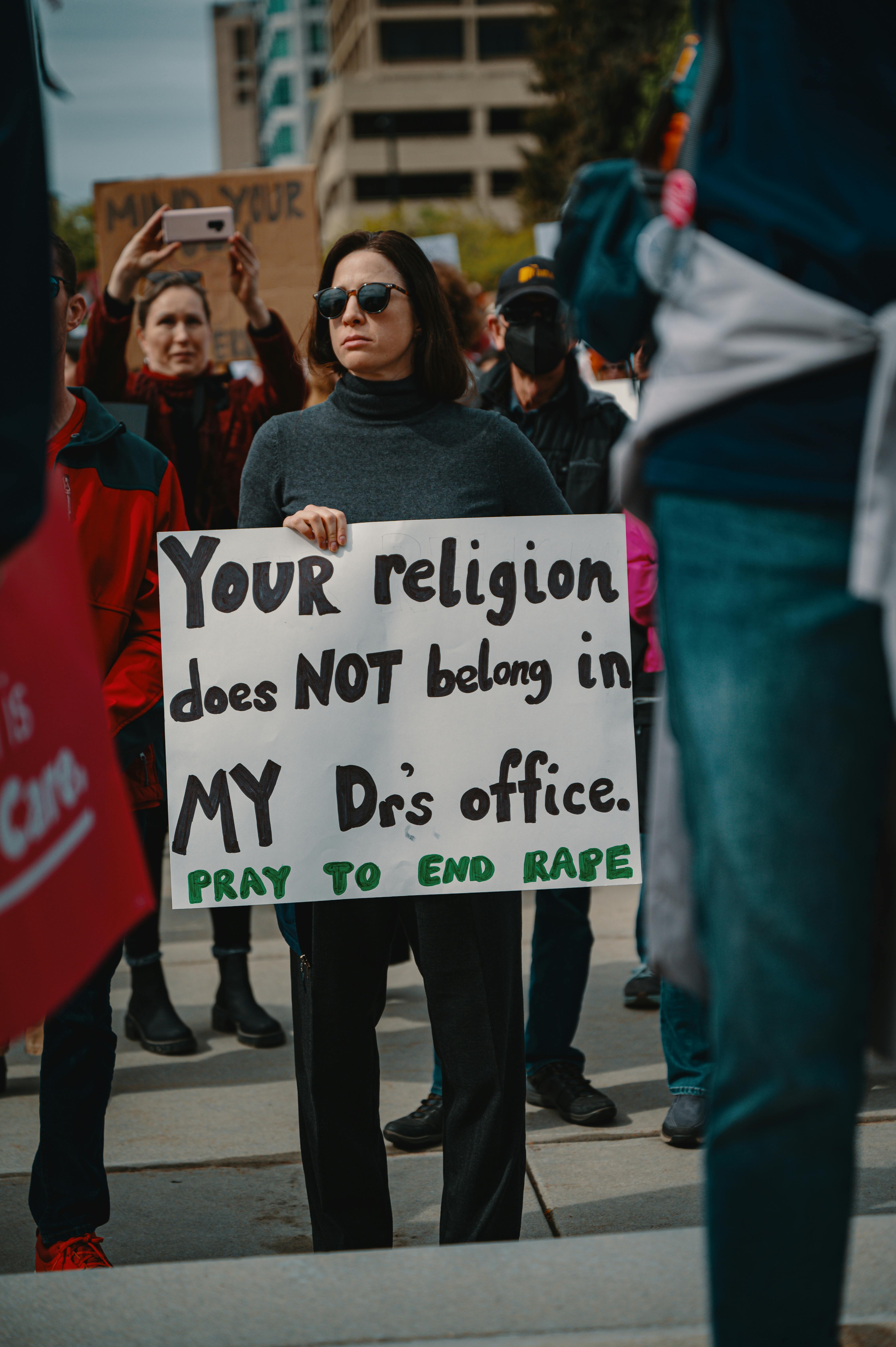It's a common misconception that secularism is anti-religious but that's not the case. Secularism is the idea that religion and government should stay separate. Whether you believe in something, nothing, or you’re still figuring it out, your beliefs are yours.
Around the world, religion offers comfort, identity, and purpose to billions. But when faith becomes law, the line between personal belief and public duty begins to blur. Secularism is a safeguard for everyone as not everyone follows one singular religion. In America there is no universally agreed number of religions but the estimates range from hundreds to thousands.
Let us slide into your dms 🥰
Get notified of top trending articles like this one every week! (we won't spam you)The Cost of Losing Secularism
Secularism ensures freedom of religion, but also freedom from religion. Without secularism, the majority beliefs can be imposed on minorities. For example, when lawmakers let religious views shape public policy, people outside that belief system can face restrictions on their rights, healthcare, or personal freedoms.
A clear and modern example of this happening is the overturn of Roe V. Wade in the United States. Many of the resulting abortion bans were heavily influenced by religious arguments about when life begins.
Take the Quiz: What Musical Should You Watch?
When Religion Shapes Law: Real-World Consequences
Continuing with the example of the overturn of Roe V. Wade, I will continue to use this an example as the ban was influenced by (Christian) religious arguments and it has become an even clear example as to why religion should not shape laws. Take the case of Congresswoman Kat Cammack, a Republican from Florida who supported strict abortion laws, including her state’s six-week ban.
On May 2024, Rep. Kat Cammak faced a life threatening ectopic pregnancy and although the law technically allowed treatment in such emergencies, hospital staff hesitated to administer the necessary procedures due to fear of legal repercussions they may face if they proceed. Cammak convinced the doctors by showing them the statue of her phone and even reached out to the governor's office just to get the care that she needed. Surprisingly, Cammak blamed Democrats for "fear-mogering," even though it was her own party (and her) that pushed for that law. Her story goes to show that faith-based policies can hurt even the people who pass them (Gupta, 2025).

Image Credit: Brett Syles From Pexels
Religion is Personal. Laws are Public.
People should be free to believe and practice any faith. But beliefs become harmful when used to deny others their rights. The government must treat citizens equally, no matter what religion or (none) they follow.
A recurring example is laws that restrict the right to marry for individuals who identify as part of the LGBTQ+ community. While same-[censored] marriage is legal in a growing number of countries, it is not yet universal. Many countries still do not recognize same-[censored] marriage, and some even criminalize same-[censored] relationships. This perspective often stems from politicians whose beliefs about traditional marriage are influenced by their religious beliefs. A strong example of this dynamic is the Philippines, where the government continues to be firm against same-[censored] marriage.
“Culturally, our values may [has a] conflict with many of the values that they want to impose upon us…That’s what we believe, ha, unless somebody argues otherwise; that is our position right now,” Justice Secretary Jesus Crispin Remulla said in a press conference. While same-[censored] marriage, he said, was rejected because “of our national identity, our religious beliefs, and our cultural traditions and the Philippines sovereignty that we need to protect and uphold at all times (Tupas, 2022)."
They argue that same-s*x marriage goes against their faith, and that belief is used to justify unequal treatment. This shows how religion, when tied to government, can prevent basic rights and protections for entire communities.
Faith Should Not Be A Political Weapon
Secularsim keeps religion safe from political corruption and misuse. It is common for politicians to reference their faith to resonate with voters, particularly during election seasons, where appealing to shared religious beliefs can offer a strategic advantage. However, they only favor one religion, while the others suffer. In the U.S, Christian nationalism can marginalize Muslims, Jews, and even atheists. An example of potential religious misuse in politics is President Donald Trump's order to fight so-called "anti-Christian bias."
“Rather than protecting religious beliefs, this task force will misuse religious freedom to justify bigotry, discrimination and the subversion of our civil rights laws,” Rachel Laser, the president of Americans United for Separation of Church and State, said in a statement (Green, 2025).
Conclusion: The Line Between Church and State Matters
Secularism isn't about silencing belief; it is about protecting democracy and diversity. I hope this explanation has provided a clear understanding of why secularism matters. Let it serve as a call to action to respect the personal nature of religion, and keep it personal, and not as a political tool.









.jpg)







